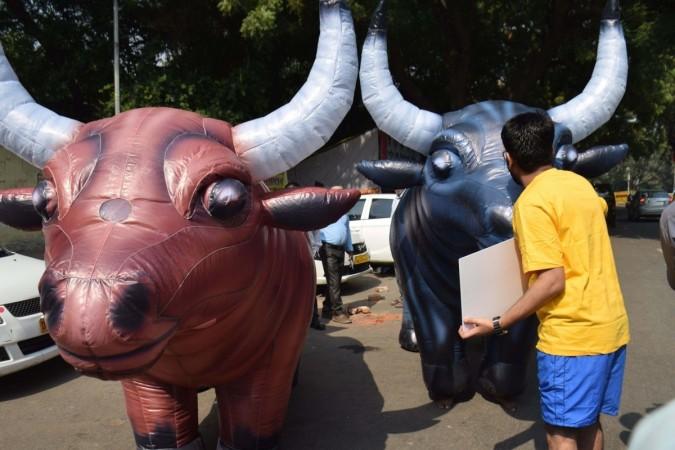
(13:55) New Delhi, June 19 (IANS) The investigation report on Jallikattu events in Tamil Nadu in January 2020, compiled by the India chapter of People for the Ethical Treatment of Animals (PETA), extensively documents the cruelty meted out to the bulls and disregard for human life.
The report was filed in the Supreme Court on Thursday, as part of PETA's petition seeking to overturn the Prevention of Cruelty to Animals (Tamil Nadu Amendment) Act, 2017, which allows the conduct of Jallikattu events in the state.
The 103-page report coupled with video footage gathered information from seven Jallikattu events which the animals' rights group investigated in Ariyalur, Dindigul, Madurai and Tiruchirappalli districts in Tamil Nadu. The investigations were conducted between January 15 and January 19, 2020.
"Year after year, PETA India's investigations tell the same story of mass human and bull deaths and the deliberate torment of bulls who are forced to take part in jallikattu," said PETA India CEO Manilal Valliyate.
"Jallikattu is an inherently abusive and dangerous practice that has no place in our modern and progressive society. PETA India is calling for an immediate reinstatement of the ban on these cruel events," Valliyate added.
The findings of the report based on calculations from various news reports showed that ever since the Tamil Nadu government legalised Jallikattu in 2017, at least 22 bulls and 57 humans have reportedly died while 3,632 humans were injured in events organised throughout the state.
PETA India contended that as bull deaths and even many human injuries are not always recorded, the figures are likely to be vastly underestimated.
PETA India's investigations reported alleged acts of cruelty and dangerous situations such as bulls being brazenly hit with bare hands, whipped with ropes, and jabbed with nail-tipped wooden sticks, metal rods and metal sickles.
The report also detailed how the bulls' tails were savagely bitten, twisted and yanked to force them into the crowds. Nose ropes were roughly handled, causing the bulls to bleed in the nostrils.
The report noted that panicked bulls fled onto village streets, injuring onlookers and even goring some to death.
It also recorded that onlookers hit and jumped onto the bulls fleeing the collection yards and engaged in the illegal practice of "parallel Jallikattu."

"Bulls sustained severe injuries, and some collapsed from exhaustion. Many bulls were not adequately physically examined by veterinarians," the report noted.
In 2017, PETA India had filed the original petition questioning the constitutional validity of the new Tamil Nadu state law and sought direction to strike it down.
The animal rights body pointed out that the law was contrary to the object and purpose of the central Prevention of Cruelty to Animals Act, 1960, which mandates that animals be protected from unnecessary pain and suffering.
Furthermore, it violated Article 51A(g) of the Constitution of India, which grants animals the fundamental right to be treated with compassion and dignity, PETA India contended.

















